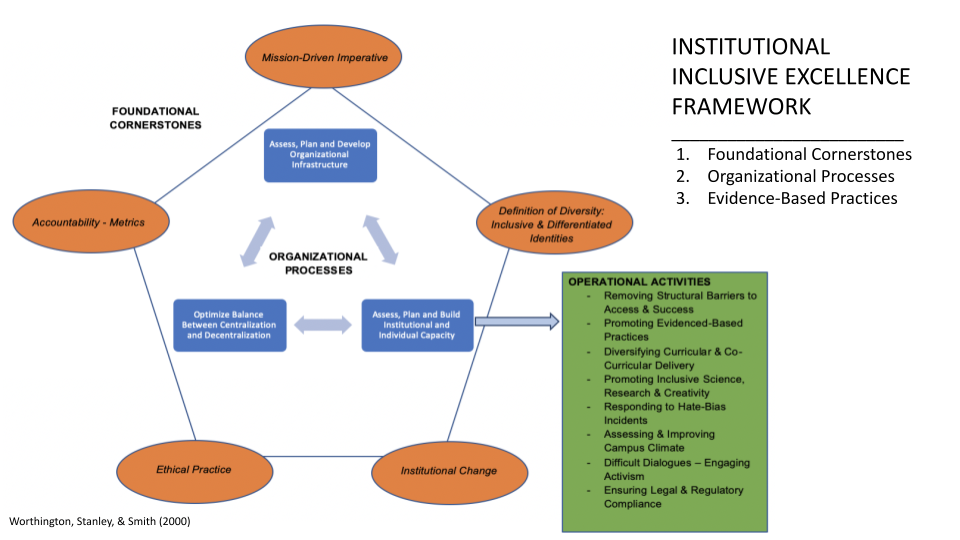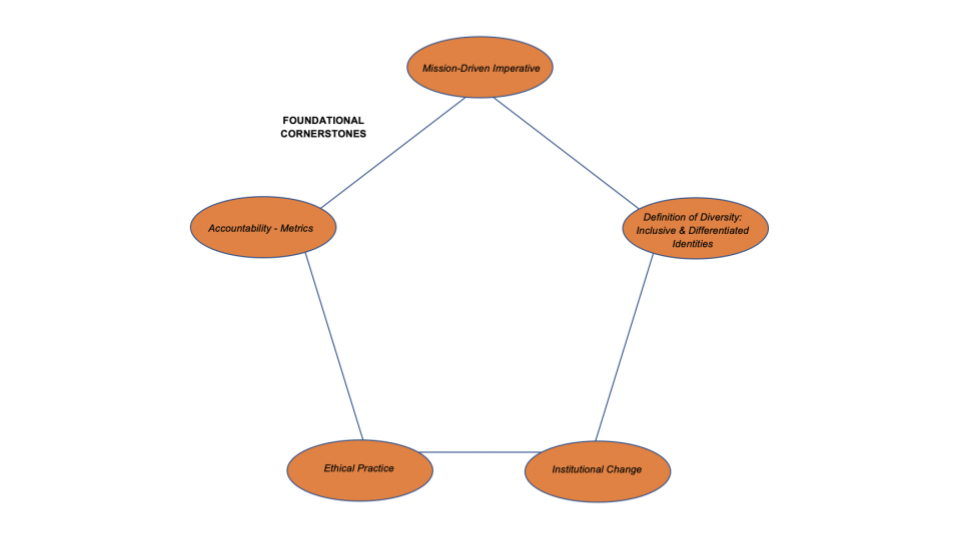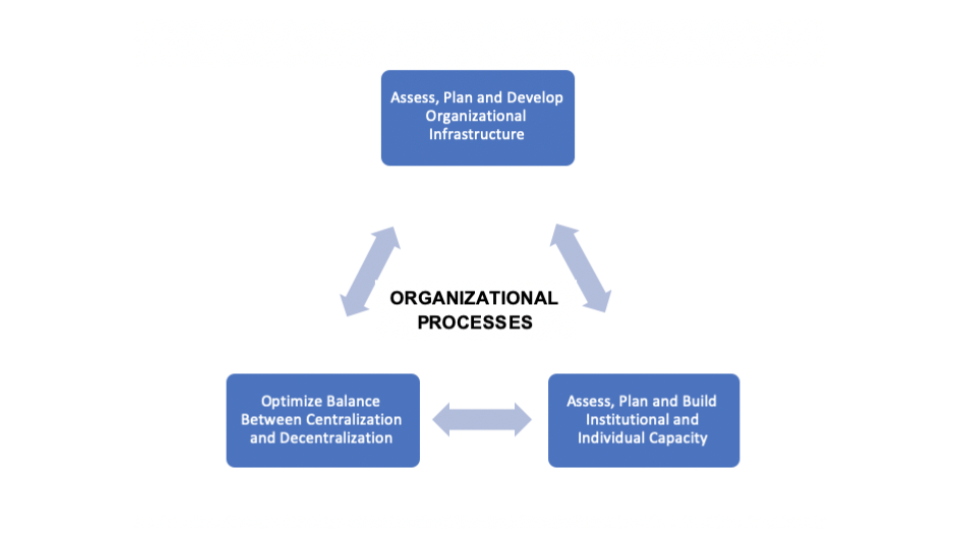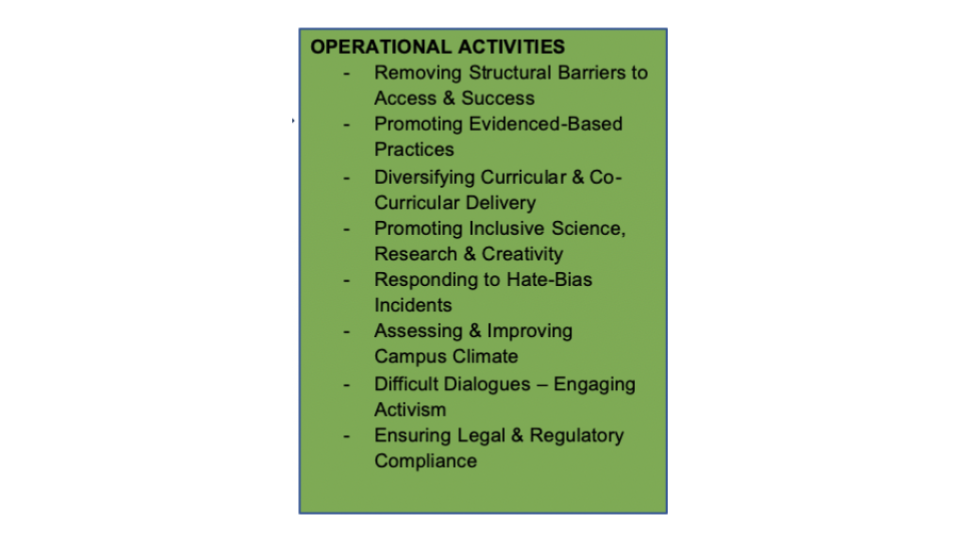Institutional Inclusive Excellence Framework
This framework was published in March of 2020 in an article by Worthington, Stanley, and Smith that provided the background and foundations for the National Association of Diversity Officers in Higher Education Standards of Professional Practice for Diversity Officers. With this framework we acknowledge that institutions of higher education are most often highly decentralized. Building a cohesive, comprehensive organizational initiative for antiracism, justice, equity, diversity, and inclusion requires a framework to establish a shared understanding of how DEI work gets done in a coordinated fashion with accountability for successful outcomes.

Adapted from Worthington, R. L., Stanley, C. A., & Smith, D. G. (2020). Advancing the professionalization of diversity officers in higher education: Report of the Presidential Task Force on the Revision of the NADOHE Standards of Professional Practice. Journal of Diversity and Inclusion in Higher Education, 13, 1-22.

Foundational Cornerstones
Operational activities require an organizational framework for success.
Focusing exclusively on operational activities often results in fragmented, disconnected, un-coordinated, siloed, and sometimes redundant or outdated approaches to the work of DEI.
Alternatively, some institutions drive the work of DEI by establishing foundational cornerstones as guiding principles:
Mission-driven imperative
Accountability/metrics
Ethical practice
Commitment to institutional change
Definitions of diversity that are inclusive and differentiated

Organizational Processes
Most higher education institutions lack a framework that provides guidance regarding the organizational processes by which the work gets done.
Assess, plan, and build institutional and individual capacity
Optimize balance between centralization and decentralization
Assess, plan, and develop organizational infrastructure
These organizational processes are inextricably intertwined.
That is, it is impossible to effectively build institutional capacity, without attending to the balance between centralization and decentralization, and allocating resources (organizational infrastructure).
Moreover, organizational processes must be guided by a foundational framework that articulates the institutional context, mission, values, priorities, and systems of accountability for achieving the desired goals and outcomes.

Operational Activities
The Operational Activities of DEI work sometimes serve as the sole focus of institutional efforts, often in fragmented or disjointed ways.
Daryl G. Smith and others have described this approach as “project-itis.” When a crisis occurs, or a problem is identified, members of the institution quickly respond by developing a project or initiative to address the problem.
Whereas most institutions are diligent about ensuring legal and regulatory compliance, and adherence to broader institutional policies, Derald Wing Sue has described this approach as “non-discriminatory,”– a defensive posture intended mainly to avoid lawsuits and other sanctions.
Moreover, position descriptions for incumbent or newly established administrative roles for diversity officers most commonly list some or all of the operational activities shown in the above graphic.